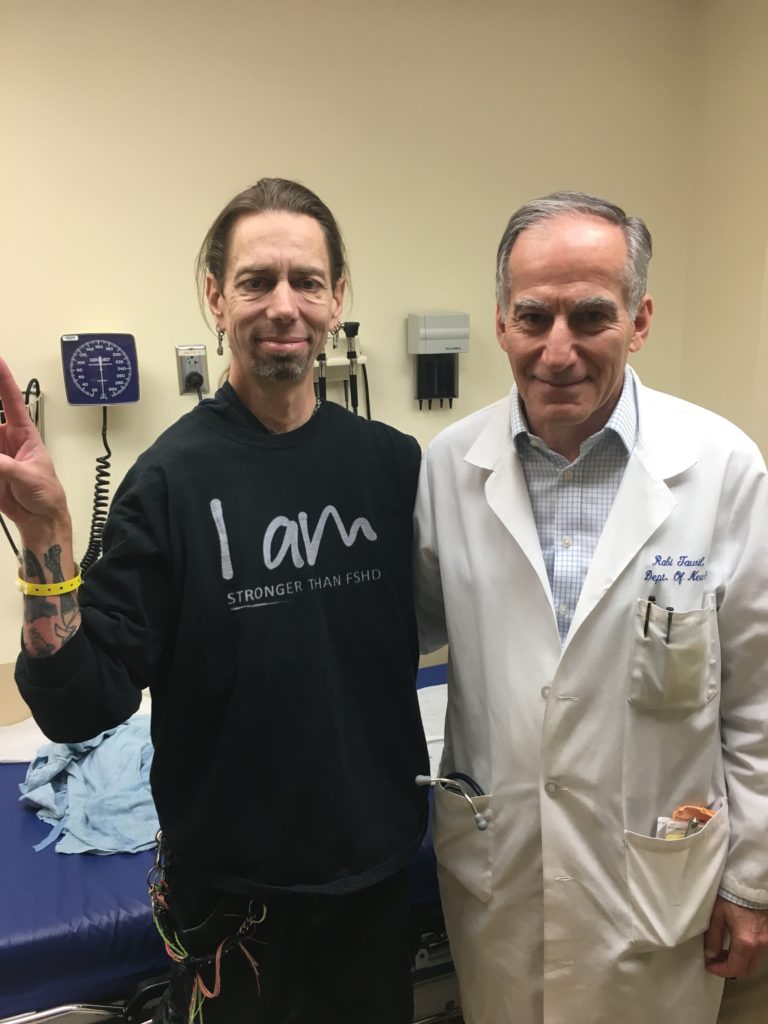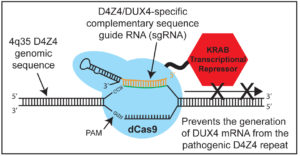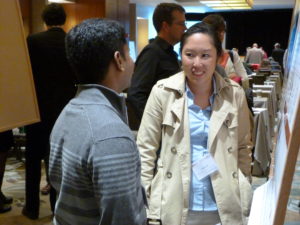
To crack the code of FSHD, patients are absolutely essential
All of the breakthroughs—the discovery of the genetic causes, understanding why some patients vary so greatly in the severity of their symptoms, teasing out the biochemical pathways that could point to future treatments—were made because patients stepped up to the plate.
Too often, we hear patients say they’ll volunteer when there’s a treatment. But we will never get to a treatment unless patients participate in fundamental research now. FSHD is uniquely human, so no laboratory mouse can ever fully model the disease. The genetic “package” that causes FSHD is found only in people. We owe an enormous debt to the patients who give DNA samples. Who submit to long interviews and exhausting physical tests. Allow a surgeon to cut out a small muscle sample. Who fight claustrophobia to lie in the narrow bore of an MRI machine.
Equally important are patients’ family members, both affected and unaffected, who provide the best experimental controls because of their shared genetic and environmental backgrounds. A parent or sibling who has very mild symptoms may hold the key to understanding the factors that protect against the full-blown development of FSHD symptoms in a more severely affected family member.
We are more hopeful today than ever before that a treatment is within sight. We cannot guarantee when that treatment will arrive, but here’s one thing we guarantee: If you volunteer for research, your participation will without question help move us a step closer to that day.
Scientific Overview of FSHD
Read the latest on wikipedia
Glossary of Scientific Terms
Dogs destined to develop muscular dystrophy evade their genetic fate
Golden retrievers with the Duchenne mutation show that disease-modifying genes may provide routes to treat a genetic disorder; possible parallels to facioscapulohumeral muscular dystrophy. Research led by Louis M. Kunkel,… Read More »
Gene Interference Technology Used Against FSH Muscular Dystrophy Genetic Defect
Proof-of-principle study is the first to use CRISPR technology on the “repeat genome,” as well as its first successful use in primary human muscle cells BOSTON, MA (PRWEB) NOVEMBER 04,… Read More »
International workshop spotlights progress in facioscapulohumeral muscular dystrophy research
Report by Charis Himeda, PhD The FSH Society’s 2015 International Research Consortium and Research Planning Meetings, held in Boston on October 5-6, 2015, brought together over 100 investigators, including leaders… Read More »
Watch DUX4 switch on in facioscapulohumeral MD muscle cells
In this amazing time-lapse video, as immature muscle cells (myoblasts) develop and fuse to form elongated myotubes, the nuclei inside the cells glow green as they express DUX4 protein, a key player… Read More »




